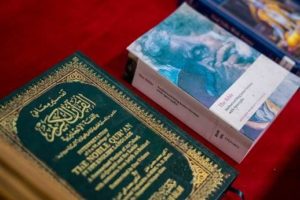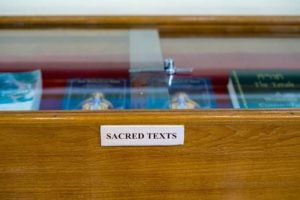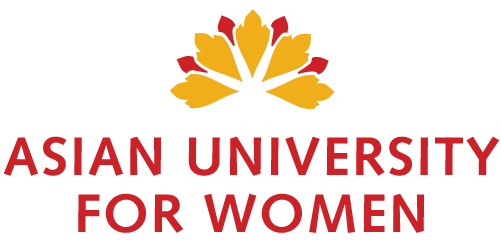In Reverence of the Other: Overcoming Religious Bigotry & Violence
Posted on November 22, 2021
Written by AUW
Dear AUW Students, Colleagues and Friends:
Yaa Devi Sarva-Bhutessu Shaanti-Ruupenna Samsthitaa |
Namas-Tasyai Namas-Tasyai Namas-Tasyai Namo Namah ||
Nineteen years ago when my daughter was born we gave her a Hindu middle name in the hope and prayer that she and her generation would not have to suffer that ignominy and pain of Hindu-Muslim communalism that had marred our generation and those of my forebearers. Alas, the violent events that took place in Bangladesh last month during the most auspicious of festivals for Bengali (and other) Hindus — the Durga Puja — reminded us that our hopes remain far unrealized. Prejudice and its attendant violence have become reliably stubborn. We are outraged (and pained); we condemn what happened in Comilla and Noakhali and elsewhere in Bangladesh. We mourn for the lost lives of innocent victims and the fear of further violence and oppression that it has stirred in our Hindu minority community. We pity all those who have attempted to take political advantage from such coarsity of our existence.
It is not enough, however, to just condemn and then move on and submit to the world as it seemingly remains. We must do everything within our powers to overcome the sources that wound us time and again and leave us dehumanized. At AUW, we propose to adopt the following actions:
Introduce Comparative Religion Courses. We believe that education can heal and tame prejudice. As such, we would introduce comparative religion courses as a part of AUW’s Core Curriculum. It would not be an unusual step for a liberal arts college to adopt such an approach. What AUW can do differently and, perhaps, more effectively, is take our comparative religion courses beyond the classroom. For in Chittagong, there is a multiplicity of communities adhering to different religious faiths — within a radius of just four miles from the location of our university, there are one or more mosques, Hindu and Budhist temples, and churches. The Ismailis have their Jamatkhana; the Bahai’s have their fireside chats around the town. We can take the study of comparative religion into an experience of multiple religions in a way that is possible in few places. It is not just the rhetoric of comparative study but in the actuality of experience that we may lead to a finer intuition and understanding of our beliefs.
Weekly Interfaith Services. As a way of deepening the sense of spirituality in our community, we hope to recommence the weekly interfaith services that would be open to all students, faculty and staff.
New Scholarships for Hindu Students. At the beginning of every Durga Puja, AUW will award scholarships to five extraordinary women drawn from the Hindu minority community in Bangladesh as a tangible commitment to empowering the Hindu minority community. These scholarships will be awarded outside of our ordinary recruitment and scholarship award process and will represent an additional element in AUW admissions.
AUW introduced the annual commemoration of Passovers more than ten years ago with the celebration of Seder and convening of conferences on themes of oppression and freedom. We will continue to support and enhance the Passover celebrations.
In the final analysis, prejudice is not a matter of our gods but of ourselves. There can be no human liberation until we are cleansed of every lingering prejudice. A reflective and sympathetic community is more likely to find a path towards such an understanding. As my esteemed college professor and mentor, Robert Coles, had said many years ago (and whom I have quoted on prior occasions as well):
In this life we prepare for things, for moments and events and situations….We worry about things, think about injustices, read what
Tolstoi or Ruskin… has to say…. Then, all of a sudden, the issue is not whether we agree with what we have heard and read and studied….The issue is us and what we have become.
The issue here is us. I hope you will join AUW as we further ponder and strive towards finding a way that heals and sustains all of us.
I look forward to hearing from you.
Warm regards,
Kamal Ahmad
Founder & Trustee
Asian University for Women
Sacred Texts as they appear in the AUW Library


